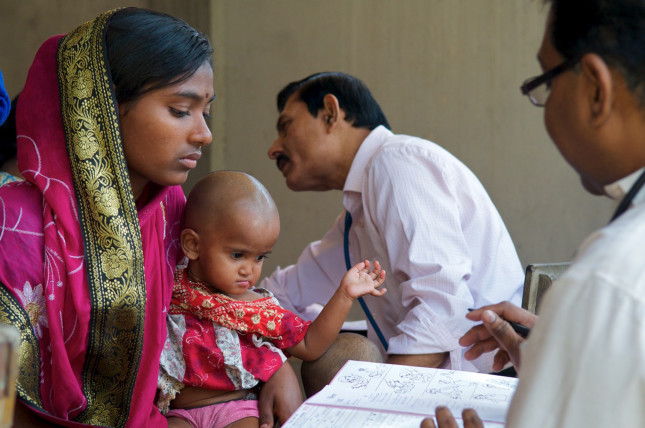-
Covid-19 // Dot-Mom // Reading Radar
COVID-19 Costs: Declining Maternal and Child Nutrition in Low-and Middle-Income Countries
February 9, 2022 By Claire Hubley
“The pandemic and related global economic recession are severe setbacks to already insufficient progress towards meeting the global nutrition targets set for 2025 for stunting, wasting, maternal anemia and breastfeeding,” write the authors of a 2021 study examining the effects of COVID-19 on child and maternal health and nutrition. Adequate nutrition in the perinatal period is essential for healthy mothers and babies, and COVID-19-induced poverty and disruptions to global supply chains have compromised the food security of people around the world, mostly in low-to-middle-income countries (LMICs).
This study used three different models of economic recovery – pessimistic, optimistic, and average – to predict the effects of increased food insecurity on maternal and child health outcomes and future productivity losses across 118 LMICs. The researchers used two modeling tools that measure population demographics and access to food and health services to predict child and maternal health outcomes under a fast and effective (optimistic) recovery, a slow and ineffective (pessimistic) recovery, and a moderate scenario. The moderate scenario assumed a second major infection wave into 2021, resulting in a stop and start economic recovery. It also assumed high vaccine access and improved recovery by 2022 and was the most likely scenario, according to the study.
Under the moderate recovery model, an estimated 2.6 million additional children will be stunted in 2022 as compared to 2019. Even under the study’s optimistic economic recovery models, up to 4.8 million pregnant women may develop anemia and 3 million may give birth while having a low body mass index (BMI), or weighing below a healthy weight for their age and height. Both anemia and low BMI increase the risks for stillbirths, neonatal deaths, and low birthweights, as well as complicate the mother’s ability to breastfeed. Therefore, the study also predicted an increase in adverse birth outcomes unless maternal nutrition interventions are introduced in 2022.
Prior to the COVID-19 pandemic, many LMICs implemented effective strategies to mitigate the worst health and economic outcomes of poor child and maternal nutrition. A 2020 study examined in-country strategies in six countries to determine which maternal and child nutrition interventions would be most effective at limiting declines in health outcomes. This study highlights interventions that focus on a broad range of risk factors that impact food security and other health outcomes, such as job loss, access to healthcare, education, and household safety/sanitation. For example, in Nepal when antenatal and neonatal health visits decreased during 2020, female community health volunteers successfully mobilized community health workers to deliver vaccines, nutritional supplements, health and nutrition education, and even reproductive, maternal, and newborn care. Ethiopia’s health extension workers have also proven effective at providing nutritional knowledge, resulting in a 20 percent decrease in stunting over 16 years. Additionally, Senegal’s focus on behavioral changes to end open defecation in villages has improved community sanitation and food safety.
Mitigating the worst of COVID-19’s effect on maternal and child nutrition and subsequent health outcomes will require a broad range of interventions targeting more than just food security. However, targeted food security investment, as shown in both studies, still has the potential to improve both the health status and future economic growth in LMICs.
Read more:
- COVID-19 deteriorates Adolescents’ Sexual and Reproductive Health and Rights
- Refugee Women and Girls experience a higher risk of gender-based violence due to COVID-19
- How do U.S. policies address maternal mental health conditions?
Sources: American Journal of Clinical Nutrition, Nature Food, United Nations Capital Development Fund, UNICEF, Unitlife, World Health Organization.
Photo Credit: Woman and child in a clinic in Kolkata, India. Kakoli Dey/Shutterstock.com
 A Publication of the Stimson Center.
A Publication of the Stimson Center.



